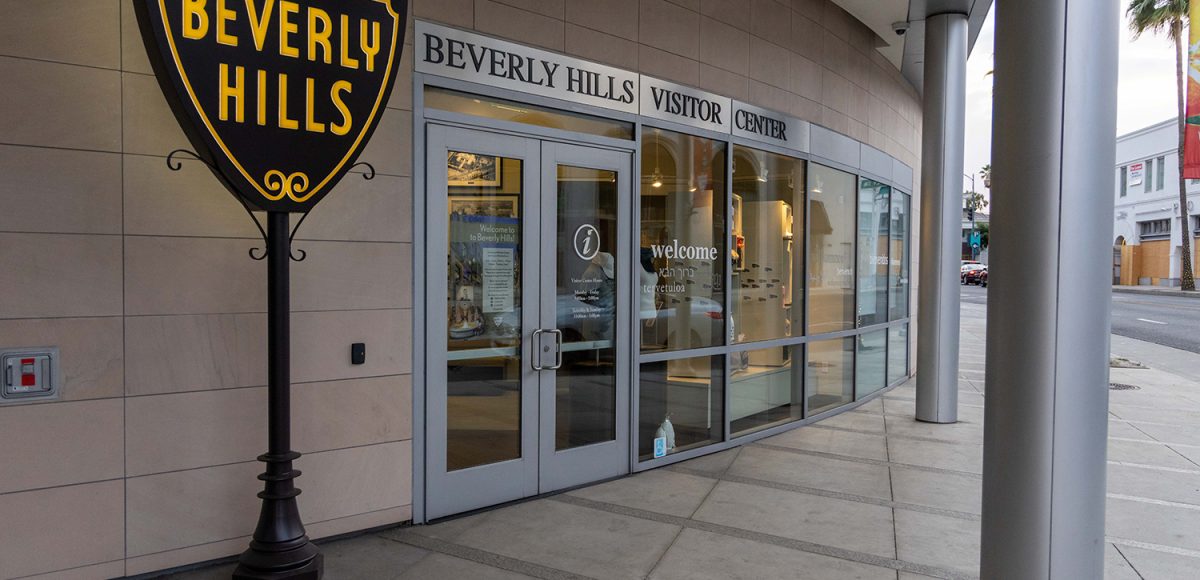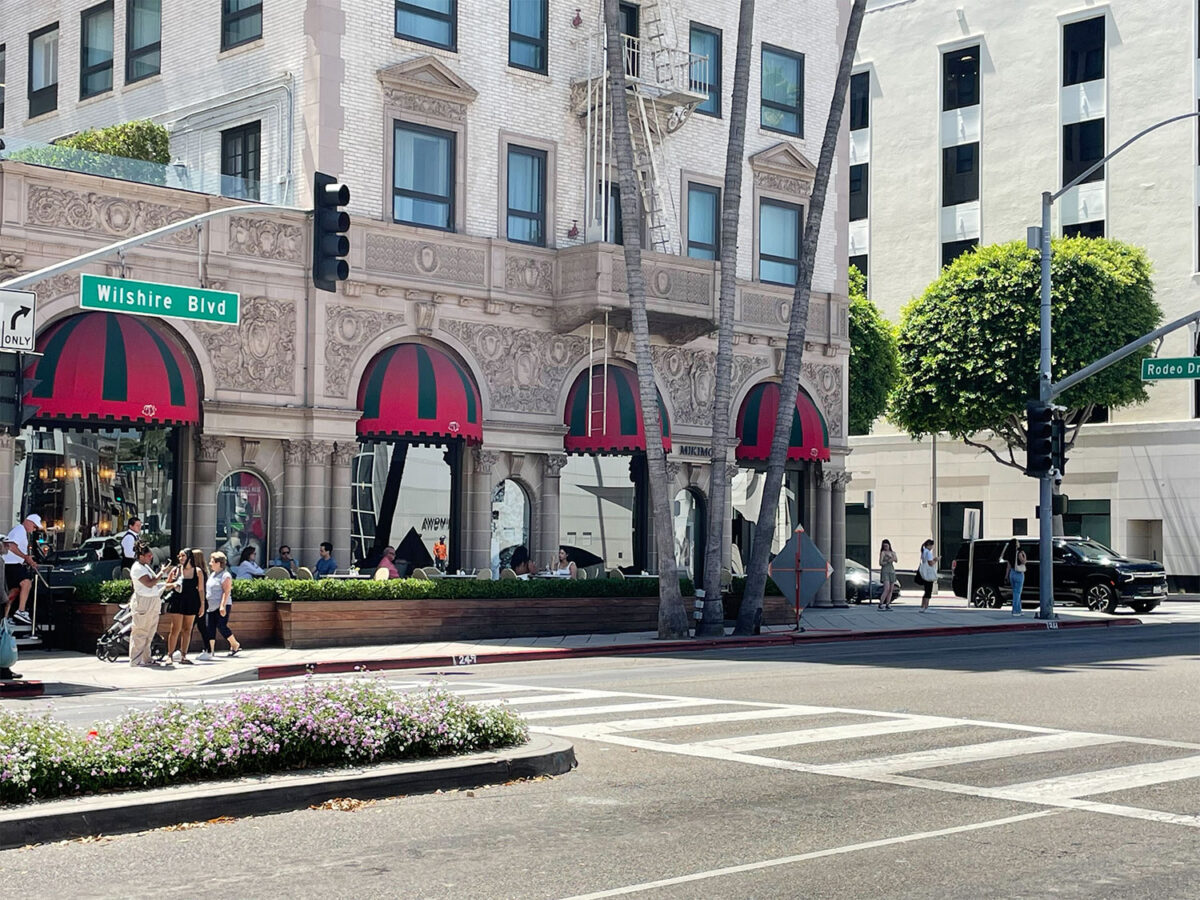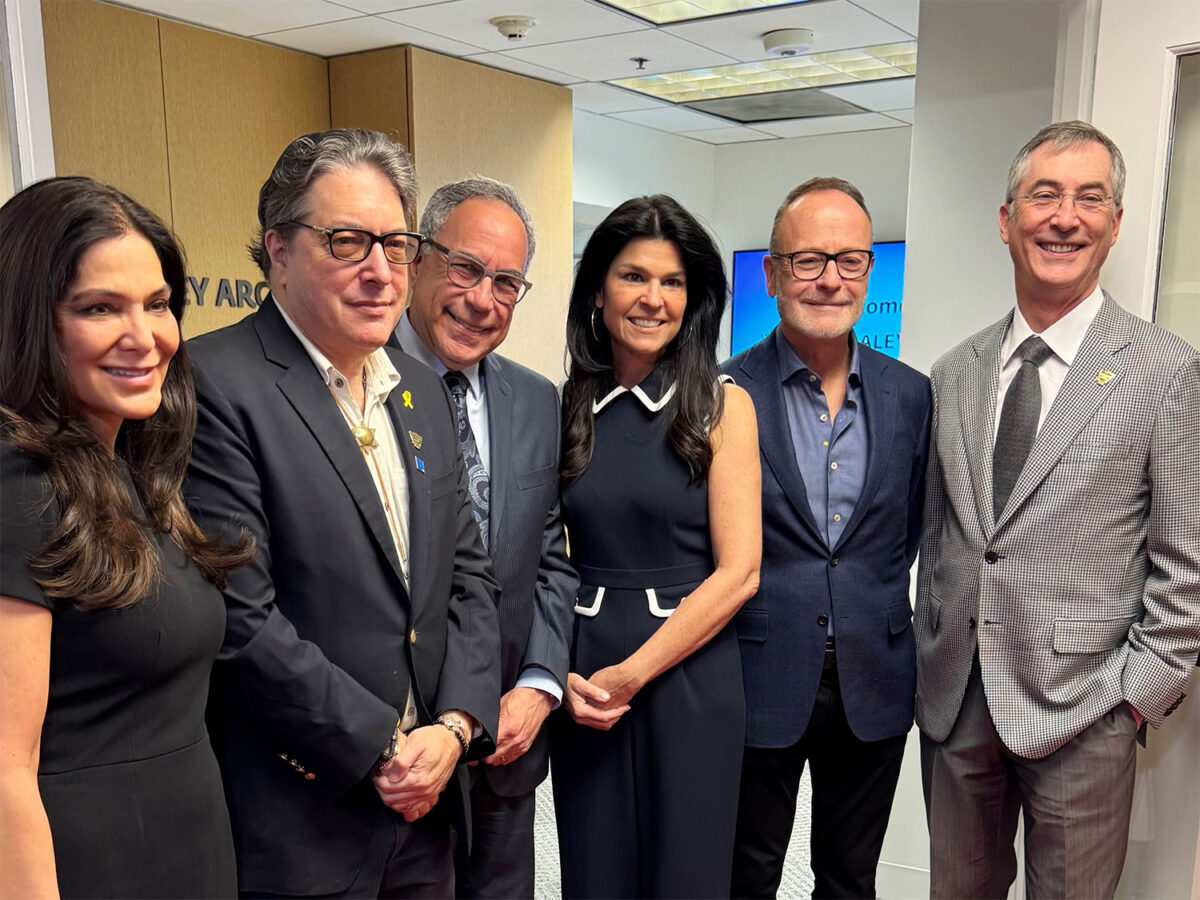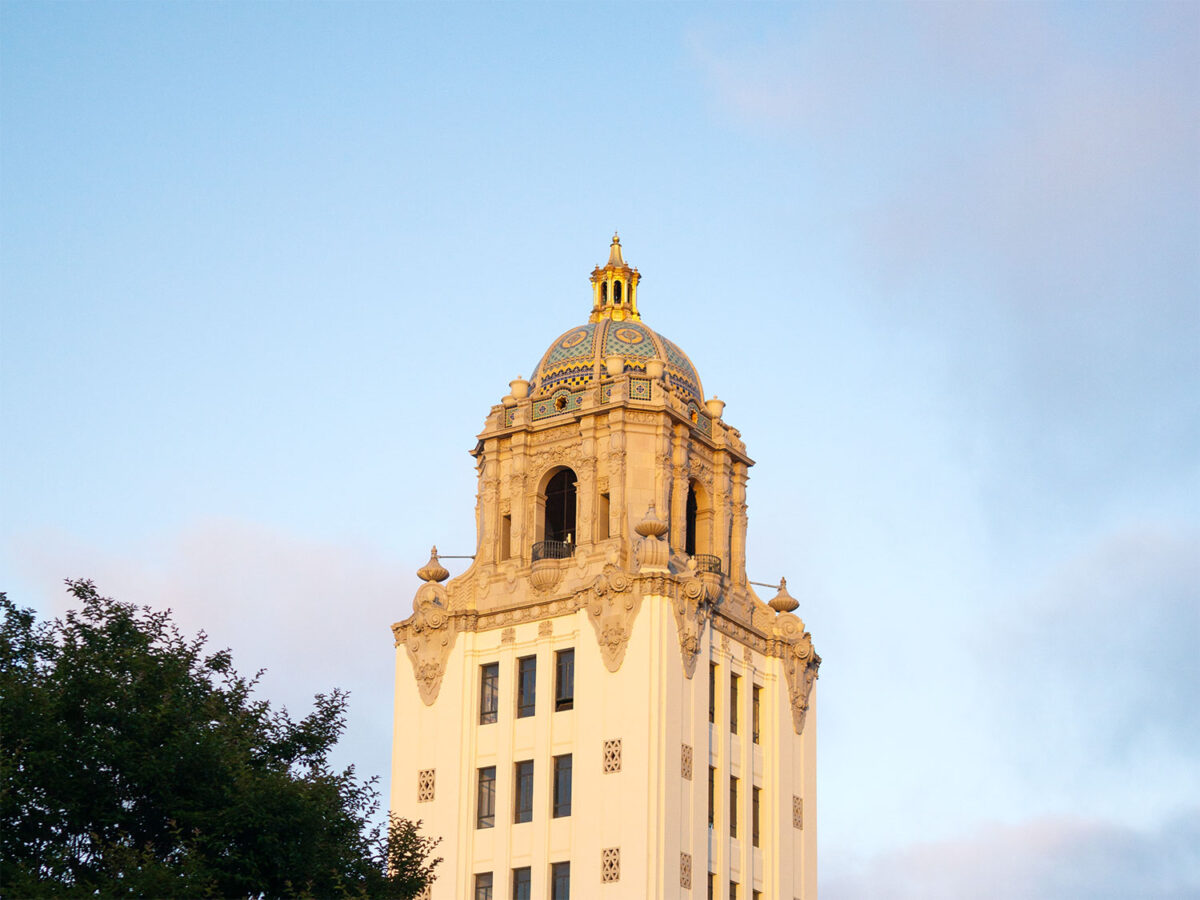At its Jan. 12 meeting, the Beverly Hills Audit and Finance Committee reviewed an audit of the Beverly Hills Conference and Visitors Bureau (CVB), the marketing organization contracted by the city to promote tourism. The audit, which covered fiscal year 2018-2019, made claims of excessive spending, poor tracking of marketing metrics, lack of oversight, and inappropriate use of funds.
It also made recommendations to correct the above. While agreeing to most of the recommendations, the CVB also pushed back against some of the findings, on grounds the audit lacked context and failed to consider the realities of luxury marketing.
Beverly Hills generates significant amounts of revenue from tourism, much of which comes from the taxes paid by the city’s many luxury hotels. In addition to the city’s many services, those taxes also fund the CVB, which serves as the city’s marketing arm to support the tourism industry. While the CVB began as part of the Beverly Hills Chamber of Commerce, it became independent in 2008, operating as a contractor for the city. In fiscal year 2018-2019, the CVB had a budget of $5,102,251. In that same time period, Beverly Hills saw 7.4 million tourists who spent $2 billion, both directly and indirectly. In the last year, the COVID-19 pandemic has dealt a crippling blow to both the city’s tourism industry and the CVB, which reduced its staff from 10 to five.
The audit credits CVB for “recent steps to strengthen its financial practices,” but it says the agency has not gone far enough. “Notwithstanding these improvements, we found that the CVB had weak internal financial management practices, including improper segregation of duties and several personal expenses made by the CVB CEO. These expenses are questionable and do not appear to directly support the CVB’s mission of promoting the City of Beverly Hills as a high-end travel destination.”
“The way the auditors wrote the report was sometimes out of context,” Wagner told the Courier. “They just made sweeping statements because they don’t really get how we do business.”
Peter Humig, regional vice president and general manager of the Beverly Wilshire and chairman of the CVB Board of Directors, provided some of that context, arguing that the CVB is punching above its weight class. “This is a super small team who is up against New York and Singapore and Hong Kong and London– huge cities,” he told the Courier. “The city of Beverly Hills, in that specific year where the audit was conducted, had done really well. Hotels were full, retailers reported record sales, restaurants were doing really well.”
The audit, authored by City Auditor Eduardo Luna, faulted the CVB for spending $2.9 million on targeted marketing events without tracking the success of the events with “post-event metrics.” Luna further dinged the Bureau for the amount spent on marketing, which he described as “excessive.”
“Special events include receptions and private dinners with costs ranging from a few thousand dollars to over $60,000 per event,” the audit reads.
The audit lists three marketing expenditures in particular that it deemed “excessive or frivolous.” In one instance in October 2018, the CVB treated 10 guests from a Las Vegas conference to salon services including makeup, hair blowouts, barber services, and chair massages. The total price tag for the experience was $2,160. In June 2019, the CVB held a private dinner in San Francisco at the 3-star Michelin Restaurant Quince. The event hosted 60 local meeting planners and travel agents and ran a bill of $64,857. The audit also lists a $53,862 dinner at New York 3-star Michelin restaurant Le Bernardin in October 2019. But as the CVB’s fiscal year ends in July, this event technically fell outside the scope of the audit–an apparent error on the auditor’s behalf.
The audit recommended that the city establish meal and beverage guidelines for dinner events. Additionally, it recommended establishing metrics to judge the return on investment generated by marketing events. The CVB agreed to both recommendations.
At the committee meeting, the CVB defended the expensive events as necessary to marketing expensive products. “The CVB’s task is to sell one of the most exclusive destinations in the world, and, therefore, when they meet with clients on site, it has to be commensurate with the product or offering,” Humig told the committee. Or, as Wagner put it to the Courier: “Luxury begets luxury.”
Vice Mayor Robert Wunderlich acknowledged the difficulty of tracking the success of marketing and advertising. “Half of my dollars spent on advertising are wasted, I only wish I knew which half it was,” he said, recounting an old business joke. “And that’s because of the difficulty of trying to discern the impact from advertising.”
Mayor Lester Friedman sympathized with the need for the CVB to spend money to make money, but also felt that the optics were too negative during a pandemic and fiscal crisis. “When the perception of spending public funds at the rate that they’re being spent is out there and we have as many issues as we have, certainly now, but just in general, it’s that optic that is really difficult to deal with. And I think that we need to find a balance.”
The audit also identified spending by Wagner that it characterized as “excessive and personal in nature.” This included use of chauffeured cars and a personal tour in Oman charged as a business expense.
Over the course of the audited period, Wagner used town car services 10 times at a total cost of $1,555. The audit points out that “the City’s travel policy states that the City will reimburse the employee for the cost of taxi rides or shuttle service to the airportand we note the specificity of the use of the terms taxis and shuttle services.”
In April 2019, Wagner went on a personal sightseeing tour in Oman while on a layover between business trips. The tour was booked by the CVB’s travel agent, who invoiced the CVB for the $1,210 cost. The audit faults Wagner for being in a position to approve all CVB credit card statements, including the statement for the tour. “By approving all of the transactions in this credit card statement, the CEO self-approved the charge for her personal tour,” it reads.
The mistake was caught soon after being made, and in May, the travel agent issued a $852.79 refund check to the CVB. The remaining $357.21 was not covered until September 2020, “when this issue was brought to her attention during the course of our review,” according to the audit.
Both the chauffeured cars and the tour expense have simple explanations, Wagner contests. “I explained to them that I have rheumatoid arthritis and so I cannot carry in my own luggage,” she explained to the committee. “And so, the reason why I take a car service is because Uber and taxis won’t lift my bags for me. So when I have heavy luggage, which I do when I’m traveling more than a few days, I need assistance.”
As for the tour, Wagner said that the travel agent accidentally charged it to the business card instead of her personal card. She admitted, though, that they didn’t initially catch the $357 discrepancy in the reimbursement. “So now we’re creating a process and procedure that tightens up some of how we do our reporting, so that mistakes like that won’t happen again,” she said.
“At the end of the day, there was a $357 mistake,” she said.
The audit recommended that CVB more tightly regulate the use of chauffeured cars and to require all expenditures by the CEO be subject to dual approval. Furthermore, the audit suggested that the CVB submit monthly spending reports to the city. The CVB agreed with most of the recommendations. It noted that chauffeured cars might be necessary for “sales missions when courting high end sales accounts or accommodations for medical reasons.” It further requested that the monthly spending reports be changed to quarterly reports.
Even as the CVB promotes high end tourism, the audit faulted the employees for staying at luxury hotels. Out of 28 trips, the audit identified eight stays at luxury hotels like the Four Seasons in Dubai, the Narcissus in Riyadh, and the Sheraton in Kuwait. A five day stay that Wagner took at the Shangri-La Al Husn in Muscat, Oman, ran the CVB nearly $3,200. The bills for these expenses sometimes included laundry, valet, and room service. “These expenses were either submitted for reimbursement or paid using the CVB credit card,” the audit notes.
“These travel expenses went undetected because the CVB does not have guidelines establishing spending limits for travel expenses including lodging, meals, hotel incidentals and business entertainment,” the report reads.
Wagner cited this is an example of how the audit took things out of context. “My excessive spending was because I stayed in hotels internationally that were in safe neighborhoods, which is part of our policy: safety comes first,” she said. “When you go to India, you usually end up staying in a Four Seasons or St. Regis, because that’s the safest place that you can stay.”
The audit advised the CVB to prohibit staff from receiving reimbursements for personal costs during work travel. It also recommended that CVB follow the city’s Travel and Meeting Expense Policy, which dictates the procedures for reimbursing employees for out-of-pocket expenses paid in the course of official business. The CVB fully endorsed not allowing staff to receive reimbursements for personal expenses but argued that the city’s policy on travel expenses would not fit for the CVB’s work and suggested another one in its place.
Although she feels that the audit missed the mark, Wagner still views it as a growing opportunity for the CVB. “This has been a great opportunity, because it’s really helped us identify some areas where we’re just too loosey goosey,” she said.







